
 Flash News
Flash News
Ceno Klosi with over 800 stolen votes, Balluku finds the reason is the tiredness of the counters
"Fast & Furious" in the former Block, police chase an Audi Q8, 4 cars collide
Car hits two tourists on a motorcycle in Fushe Arrëz, one of them dies
Serious accident in Thumanë, one dead, 3 injured
Durrës Court suspends the director of Pre-University Education from duty
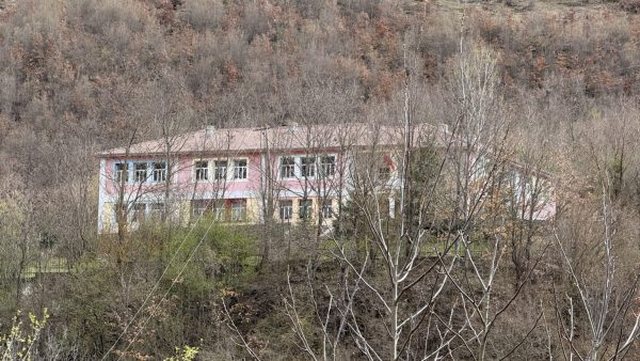
In terms of dedication and enthusiasm for their work, Armela says she and her fellow elementary school teachers in a remote corner of southeastern Albania are no different from their city colleagues.
However, the tools they have at their disposal "make us unequal," said Armela, who spoke on condition of anonymity.
“We often have to adapt curricula based on the resources the school has,” she told BIRN.
The biggest difference is definitely in IT.
Albania has made it a national priority to introduce so-called “SmartLabs” – IT laboratories – in schools, so that every child has the necessary tools to thrive in an increasingly digital world.
"The goal is that by 2026, this project will extend throughout Albania, adding 654 new SmartLabs and ensuring that every student, from north to south, has equal opportunities to develop digital skills in a modern and innovative environment," said the National Agency for the Information Society, AKSHI, which is tasked with the development of information and communication technology in Albania.
But while students are proficient in using smartphones and laptops, access to digital tools in the classroom varies greatly between urban and rural areas, leading to concerns about growing digital inequality.
According to Qëndresa Kyvitare, internet is available in only 46 percent of all schools, primary and secondary, and only 5.3 percent have Wi-Fi.
“This contradicts the principle of equality in education,” said Mateo Yskollari, an education policy analyst at Civic Resistance.
Armela said that the school where she works has internet, but "very often the internet is interrupted, especially during bad weather and power outages."
Neglected rural areas
Digitalization is the latest buzzword in Albania, touted as an excellent solution to bureaucracy and inefficiency.
But while the shift to digitalization can simplify bureaucracy and reduce costs, “it can produce the opposite result when it comes to vulnerable categories,” said Jordan Jorgji, a lecturer at Fan S. Noli University in Korça.
"The most vulnerable categories when it comes to digital inequality are the poor, the elderly, and those living in remote areas far from urban centers."
“It is the newest gap, and without investment to manage it, in the future we may see national or regional gaps created in the world of the great digital revolution.”
"Thus, it cannot be ruled out that the elderly or those who do not possess the knowledge and technological tools may find themselves economically disadvantaged when trying to access digital services."
According to data from the Ministry of Education, 1,723 out of 3,659 public and non-public educational institutions in Albania are equipped with the internet, of which 485 are in the Korça region.
In Lozhan, part of Korça, the school uses the internet only sparingly in teaching. There is no IT lab and parents also complain that the school has not yet made use of digital communication tools.
"There is no online platform to get information about the child's progress," said mother of two, Mimoza Hadri.
“I physically go to school and contact teachers when I want to know their results,” she said. “The internet doesn’t help us with anything except entertainment.”
Contacted by BIRN, Albania’s Ministry of Education praised the benefits of a national online platform called SMIP “which facilitates communication between parents, teachers and students, making the educational process clearer and more efficient.”
Yskollari objected to this, saying: “SMIP is intended as a monitoring and decision-making tool for the Ministry of Education. It is not a functional platform for teaching, daily announcements, assignments or digital resources for students and teachers.”
“Teachers use it to report data, but not to develop the teaching process or communicate with parents and students.”
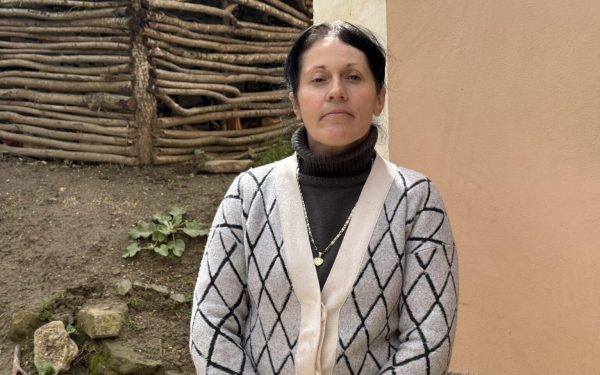
According to 2024 data from the Electronic and Postal Communications Authority, AKEP, about 97 percent of Albania's territory is covered by mobile internet, but broadband internet access falls in rural areas, while the average monthly price can exceed 15 euros.
This can be a lot for retirees or those living below the poverty line.
"We have internet access here, but it often disconnects. I don't use the internet at all," said 73-year-old Eleni Pilinci, who lives in the village of Peshkëpi, near Pogradec, on the border with North Macedonia.
"I've heard about e-Albania, but that's what my kids deal with. There's no signal inside the house, so I leave my phone outside."
Internet service providers often neglect sparsely populated rural areas, where investment costs are high and profits are low.
In Dardhas, near Peshkëpi, 69-year-old Fevzi Mucka said he has to take the bus to Pogradec and pay to access services that are now available online.
“In the village, no one bothers with e-Albania,” he said. “For everything we need, we have to go to Pogradec. My pension is 10,000 lek (100 euros). That money disappears if I go to Pogradec three times for a document.”
Many older Albanians feel left behind by the digital revolution. Armela said that rural youth should not be allowed to be left behind either.
“Investing in remote areas with a small number of students and residents seems almost impossible,” she said./BIRN
Latest news





Lufta në Gaza/ Pse Netanyahu do vetëm një armëpushim 60-ditor, jo të përhershëm?
2025-07-02 21:56:08
US suspends some military aid to Ukraine
2025-07-02 21:40:55



Methadone shortage, users return to heroin: We steal to buy it
2025-07-02 20:57:35
Government enters oil market, Rama: New price for consumers
2025-07-02 20:43:30
WHO calls for 50% price hike for tobacco, alcohol and sugary drinks
2025-07-02 20:41:53






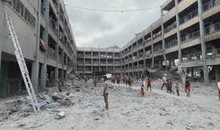
Israel agrees to 60-day ceasefire in Gaza, but many unanswered questions remain
2025-07-02 18:35:27
The weather in Germany is going "crazy", temperatures reach 40°C
2025-07-02 18:22:21

"Fast & Furious" in the former Block, police chase an Audi Q8, 4 cars collide
2025-07-02 17:59:25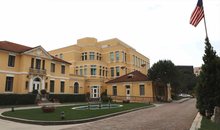
"Birth on a tourist visa? US Embassy warns Albanians: This is prohibited!"
2025-07-02 17:48:16


BIRN: Fier recount reveals vote trafficking within open political party lists
2025-07-02 16:57:19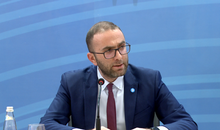

CEO and former director of 'Bankers Petroleum' arrested in Fier
2025-07-02 16:40:42
Car hits two tourists on a motorcycle in Fushe Arrëz, one of them dies
2025-07-02 16:33:23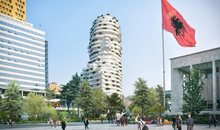



Fire at the Elbasan Incinerator Landfill, Prosecution Launches Investigations
2025-07-02 15:34:54
What you need to know if you travel to a country with active volcanoes
2025-07-02 15:33:03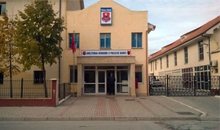



EU proposes 90% reduction in greenhouse gases by 2040
2025-07-02 14:50:23
Europe is burning from the heat / Italy and France are on maximum alert
2025-07-02 14:36:52

Moscow's contradictory statements: Is the friendship with Vučić breaking down?
2025-07-02 14:21:05
'I lost my battle': Sea warming is killing fishing in Albania
2025-07-02 14:08:35
Sekretet kimike që ndihmojnë në mbajtjen e mjaltit të freskët për kaq gjatë
2025-07-02 14:01:26
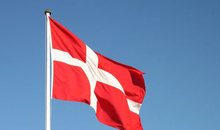
Denmark makes historic decision to make military service mandatory for women
2025-07-02 13:44:33
The appeal of the GJKKO leaves former judge Pajtime Fetahu in prison
2025-07-02 13:30:20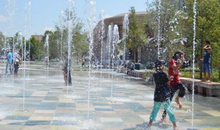
Productivity losses could reduce GDP by 1.3% as a result of extreme heat
2025-07-02 13:21:04
He abused his minor daughter, Zamir Meta is left in prison
2025-07-02 13:04:04
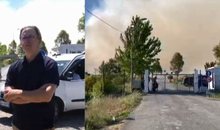
Waste burning in Elbasan, Alizoti: They are poisoning people and stealing money
2025-07-02 12:48:39
Civil disobedience continues in Serbia, dozens of people detained
2025-07-02 12:40:32
Rama's government was born under the sign of garbage and will end like this
2025-07-02 12:28:09
Water prices increase in the municipalities of the Elbasan region
2025-07-02 12:13:38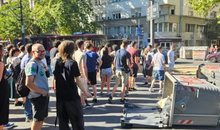
Civil disobedience continues in Serbia, what is happening in Belgrade?
2025-07-02 12:07:44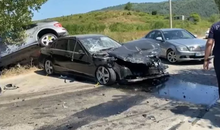
Serious accident in Thumanë, one dead, 3 injured
2025-07-02 11:54:42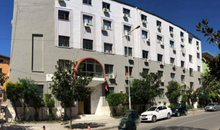
Durrës Court suspends the director of Pre-University Education from duty
2025-07-02 11:49:27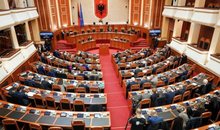
Plenary session on Thursday, what is expected to be discussed
2025-07-02 11:36:43
Europe is burning from heat waves/ What is the 'thermal dome' phenomenon?
2025-07-02 11:26:25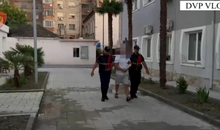
Wanted by Italy for murder, 45-year-old arrested in Vlora
2025-07-02 11:19:31
Fire situation, 28 fires reported in 24 hours, 2 still active
2025-07-02 11:13:20
"Buka" file, preliminary hearing for Ahmetaj postponed to July 17
2025-07-02 11:03:30


Baçi: Belinda Balluku and Ceno Klosi, the most dangerous "gangs" in Fier
2025-07-02 10:32:09
Zamir Meta, suspected of sexually abusing his daughter, arrives in court
2025-07-02 10:21:33

Trump: Israel has agreed to a 60-day ceasefire in Gaza
2025-07-02 10:01:55
Fire continues at Elbasan landfill
2025-07-02 09:51:13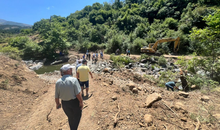

Dates to note during July, important events will occur
2025-07-02 09:31:45
The hearing for Jorgo Goro's claim is postponed
2025-07-02 09:24:19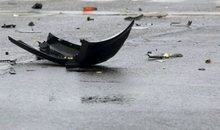



Foreign exchange, the rate at which foreign currencies are sold and bought
2025-07-02 08:42:31

52% of pensioners did not receive full pension in 2024
2025-07-02 08:27:18
Horoscope, what do the stars have in store for you today?
2025-07-02 08:13:36
Hot weather, Wednesday brings high temperatures
2025-07-02 07:59:16
Morning Post/ In 2 lines: What mattered yesterday in Albania
2025-07-02 07:46:15
Heatwave sweeps across Europe, Spain and England record hottest June ever
2025-07-01 22:57:41






Golem and Qerret without water at the peak of the tourist season
2025-07-01 21:09:32

Euractiv: Italy-Albania migrant deal faces biggest legal challenge yet
2025-07-01 20:53:38
BIRN: Brataj and Fevziu victims of a 'deepfake' on Facebook
2025-07-01 20:44:00

Vlora by-pass, work delays and cost increases
2025-07-01 20:24:29



Milan are expected to give up on the transfer of Granit Xhaka
2025-07-01 19:41:25

